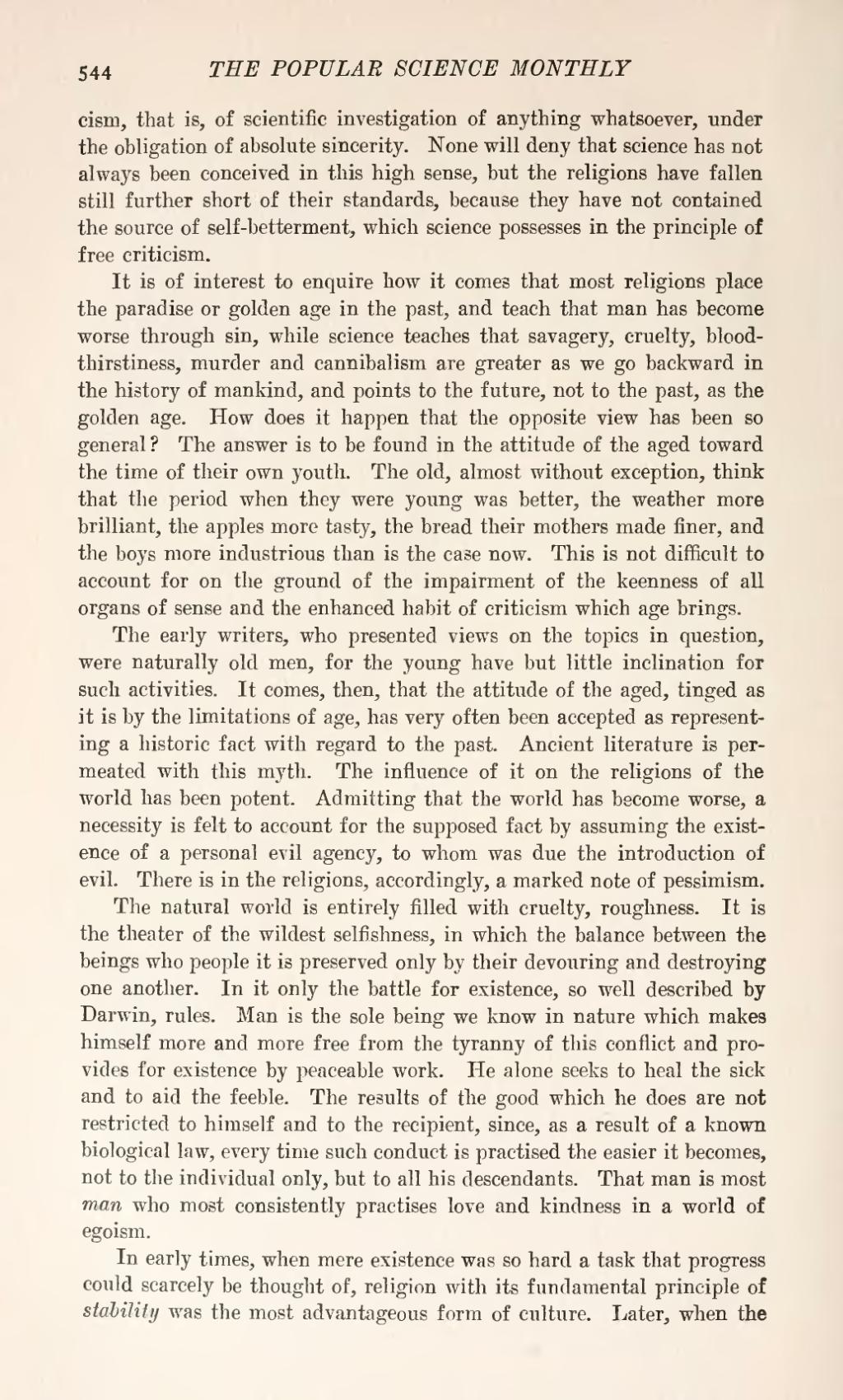cism, that is, of scientific investigation of anything whatsoever, under the obligation of absolute sincerity. None will deny that science has not always been conceived in this high sense, but the religions have fallen still further short of their standards, because they have not contained the source of self-betterment, which science possesses in the principle of free criticism.
It is of interest to enquire how it comes that most religions place the paradise or golden age in the past, and teach that man has become worse through sin, while science teaches that savagery, cruelty, bloodthirstiness, murder and cannibalism are greater as we go backward in the history of mankind, and points to the future, not to the past, as the golden age. How does it happen that the opposite view has been so general? The answer is to be found in the attitude of the aged toward the time of their own youth. The old, almost without exception, think that the period when they were young was better, the weather more brilliant, the apples more tasty, the bread their mothers made finer, and the boys more industrious than is the case now. This is not difficult to account for on the ground of the impairment of the keenness of all organs of sense and the enhanced habit of criticism which age brings.
The early writers, who presented views on the topics in question, were naturally old men, for the young have but little inclination for such activities. It comes, then, that the attitude of the aged, tinged as it is by the limitations of age, has very often been accepted as representing a historic fact with regard to the past. Ancient literature is permeated with this myth. The influence of it on the religions of the world has been potent. Admitting that the world has become worse, a necessity is felt to account for the supposed fact by assuming the existence of a personal evil agency, to whom was due the introduction of evil. There is in the religions, accordingly, a marked note of pessimism.
The natural world is entirely filled with cruelty, roughness. It is the theater of the wildest selfishness, in which the balance between the beings who people it is preserved only by their devouring and destroying one another. In it only the battle for existence, so well described by Darwin, rules. Man is the sole being we know in nature which makes himself more and more free from the tyranny of this conflict and provides for existence by peaceable work. He alone seeks to heal the sick and to aid the feeble. The results of the good which he does are not restricted to himself and to the recipient, since, as a result of a known biological law, every time such conduct is practised the easier it becomes, not to the individual only, but to all his descendants. That man is most man who most consistently practises love and kindness in a world of egoism.
In early times, when mere existence was so hard a task that progress could scarcely be thought of, religion with its fundamental principle of stability was the most advantageous form of culture. Later, when the

